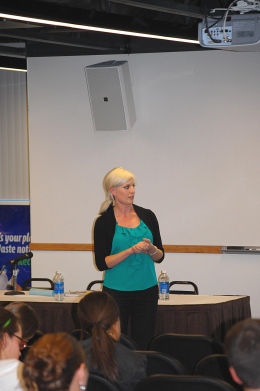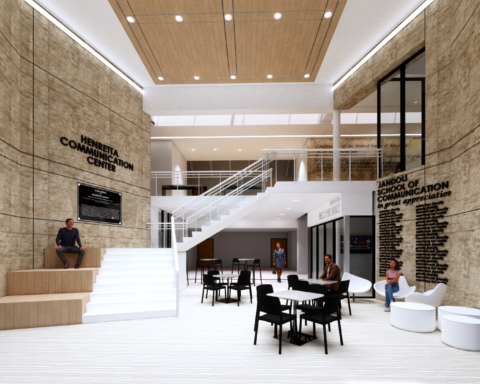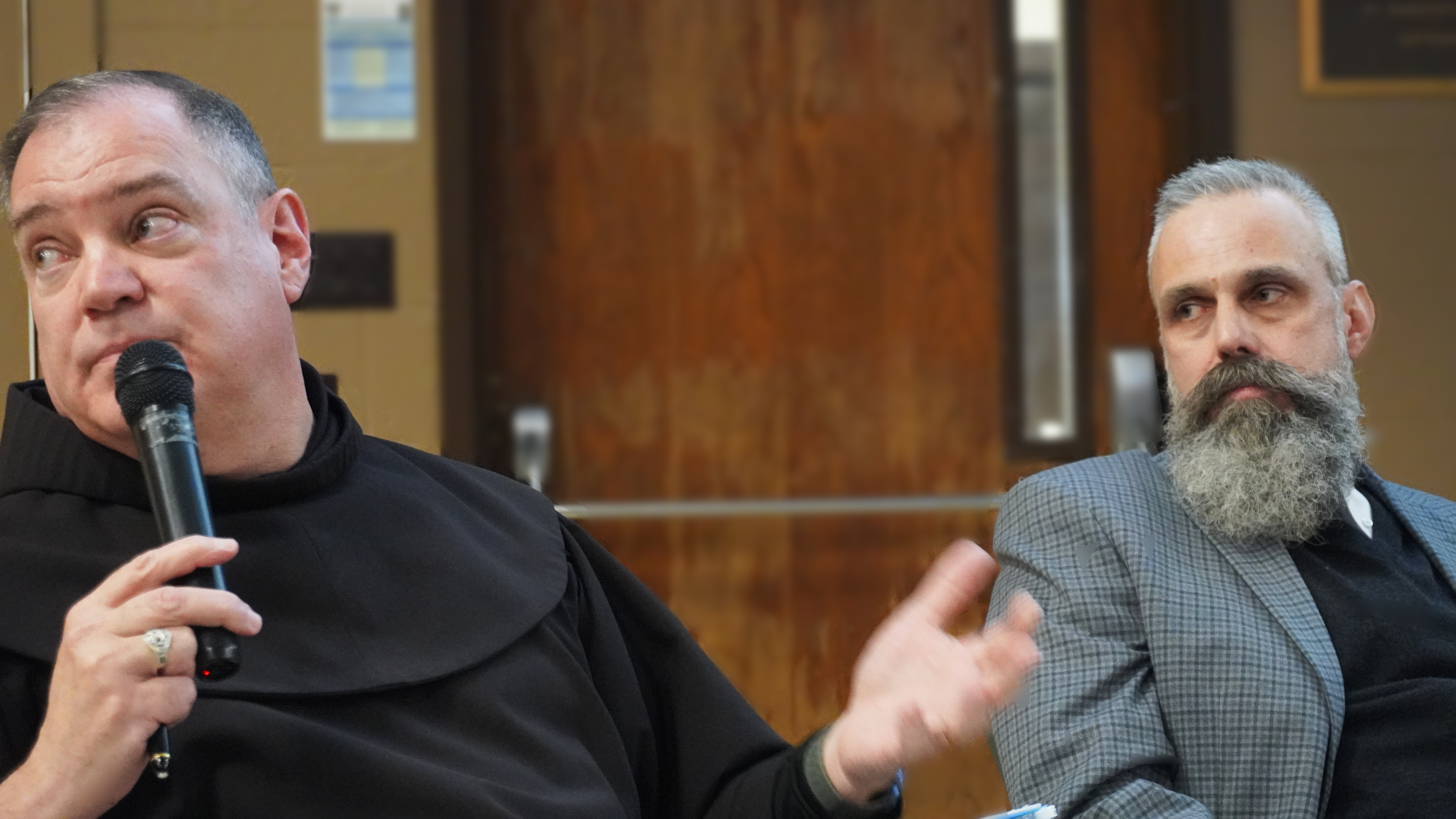By Marissa Bruno
Staff Writer
Two representatives from the recycling program Casella spoke to the St. Bonaventure community about preserving Earth’s natural resources for the university’s annual Recyclemania event on campus.
Carrie A. Carpenter, Casella territory manager, described Zero Sort as a brand name to a single-stream recycling process that uses a simple sorting method to recycle. The program simplifies the handling and collecting of recyclables by requiring only one container.
“Recycling rates skyrocketed when it became easier to recycle,” Carpenter said.
This initiative has changed the way Casella’s waste management service operates. Everything goes into one bin. Once the recyclables go to a material recovery facility (MRF), a camera reads each item’s type and uses air jets to sort the materials. This optical sorting system makes the job simpler and reduces Casella’s carbon footprint, Carpenter said.
“St. Bonaventure has worked very hard on increasing Zero Sort recycling,” Andrea Yonge, business development manager of Casella, said.
Casella provides waste removal and the Zero Sort program to the campus. Last year, recycling rose 12 percent to a total of 52 tons.
“We’ve seen a great increase,” Yonge said. “It’s a lower number, but it’s a good start. We’re excited to see more improvement. Sustainability is an exciting word for campuses.”
Casella began as a recycling company in 1975. In 2010, Casella recycled 890,000 tons of organics (compost) and material recyclables.
Carpenter said aluminum is a top commodity for the company.
Carpenter, who has worked for Casella for six years, moved over to the recycling movement and expressed her goal for the event.
“I want to get rid of the fallacies about recycling,” Carpenter said. “When you mix all the materials together, people thought the glass would be pushed into the other materials. With Zero Sort, these materials are either rejected or thoroughly sorted by the machines.”
Zero Sort differs from regular recycling, in which each item needs to be separated out.
“We live in a fast-food industry,” Carpenter said. “No one has time to sort their aluminums, paper, etcetera.”
Carpenter said Casella wanted to cater to the consumers in making their recycling process easy.
The audience saw two videos describing the benefits of recycling and the process of Zero Sort. The video described the importance of sustainability.
Cardboard, tissue paper, napkins and paper cups are some of the items produced by the paper mill in conjunction with Casella in a closed-loop system.
“About 60 percent of your household trash is recyclable, 30 percent is organic waste and 10 percent is true trash,” Carpenter said.
Carpenter urged students to spread the knowledge they learned about recycling.
“The number one thing to do to increase recycling is to educate,” she said.
brunomc10@bonaventure.edu






